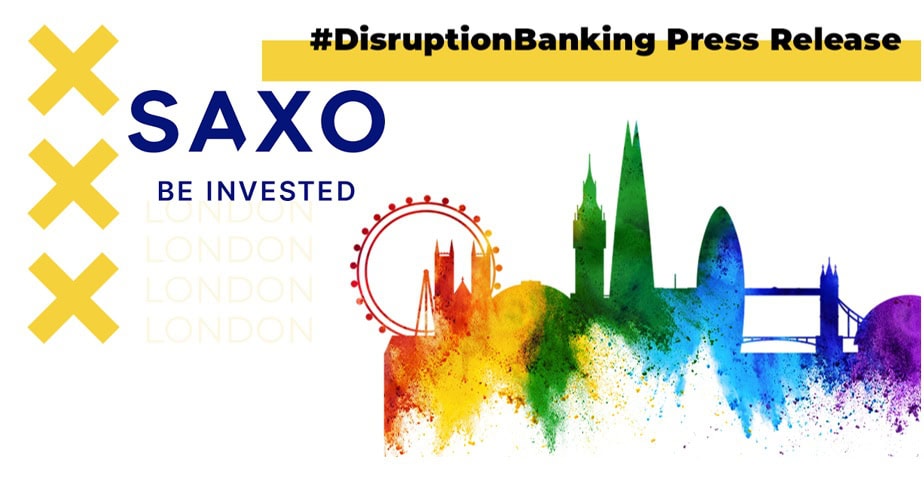In 2024, China’s economy is hitting a rough patch, with GDP growth projected to slow down to around 5%. That might not sound like a huge drop, but for a country used to booming growth, it’s a big deal. This slowdown is hitting China’s top 100 banks hard, and they’re feeling the squeeze. But instead of just sitting back and hoping things get better, many banks are taking action. They’re focusing on sustainability—adopting policies that protect the environment, improve their social impact, and ensure strong governance (also called ESG policies) to stay strong in tough times.
Bridgewater Associates founder Ray Dalio said a small part of his family office’s portfolio remains invested in #China, but pointed out that there are “real issues” in the country amid a deepening economic slowdown.https://t.co/51eEvSsSh1
— #DisruptionBanking (@DisruptionBank) September 18, 2024
A recent survey shows that a significant number of China’s biggest banks are now incorporating ESG practices into their operations. And here’s the thing: it’s not just about “going green” or doing something nice for the planet. For these banks, it’s a survival strategy.
China’s economy isn’t growing like it used to. Back in the day, double-digit growth was the norm, but those times are over. In 2024, the GDP growth rate is projected to be between 4.7% to 5.0%. This slowdown is the result of several factors, including trade tensions, global economic challenges, and the aftereffects of COVID-19.
For banks, this means less money to lend, slower investments, and tighter financial conditions. In 2024, lending growth in China dropped to 8.7%, down from a higher rate the previous year. Banks are now being forced to find new ways to operate in this slower economy. As one executive from the Agricultural Bank of China put it, “We can’t rely on fast growth anymore. We need smarter, more efficient ways to handle this new reality.”
Why ESG Matters
So, how are banks managing in this challenging time? The answer is ESG—focusing on sustainability to reduce risk and build trust. In fact, a good number of China’s top 100 banks have increasingly adopted ESG policies, reflecting a growing trend from previous years.
The Chinese government is playing a substantial role in shaping the sustainability efforts of these banks. Recent regulatory changes have encouraged banks to adopt stronger ESG policies. The Green Finance Guidelines, such as those issued by the China Banking and Insurance Regulatory Commission in 2022 and the green bond guidelines launched by the Securities and Exchange Commission in July 2024, are prime examples. “These guidelines are a game-changer,” says Liu Hong, a policy analyst. They provide a clear framework for banks to follow, making it easier to implement sustainable practices.
Chinese authorities are going to extraordinary lengths to tighten their grip on the #bondmarket
— #DisruptionBanking (@DisruptionBank) August 13, 2024
Regulators told rural #banks in Jiangxi province not to settle recent purchases of government bonds, an order to effectively renege on their market obligations https://t.co/woKITUlamF
Let’s take a closer look at some leading banks excelling in sustainability.
Take the Bank of China, for example. In its 2023 annual report, the bank outlined its ongoing efforts to reduce carbon emissions and support green finance initiatives. That’s a big part of its larger plan to be carbon-neutral by 2060, aligning with China’s national goals. On top of that, the bank issued several green bonds, which are investments used specifically for environmental projects.
The Industrial and Commercial Bank of China (ICBC) is also stepping up. In 2023, ICBC accelerated the integration of AI-driven risk assessment tools to enhance the management of their loan portfolios. This technology helps the bank identify potential risks early and take proactive measures to mitigate them.
The bank uses blockchain technology to enhance transparency in its supply chain financing, reducing fraud and ensuring that funds are used for sustainable purposes. As the largest bank in the world by assets, ICBC has pledged to cut its emissions by 50% by 2030. In 2024, it issued $2.2 billion in green bonds, investing in clean energy projects across various regions, including China. These moves are not just helping the environment—they’re making the banks more resilient to economic shocks.
While many banks are getting on board with ESG, a few are really standing out. In addition to ICBC and the Bank of China, China Merchants Bank is doing some big things too. By mid-2024, it had been actively involved in financing renewable energy projects, including a strategic alliance to fund up to $1.53 billion worth of renewable energy solutions over the next three years. This makes it a significant supporter of green energy in China’s banking sector.
China’s #ClimateAction:
— Lijian Zhao 赵立坚 (@zlj517) April 15, 2022
China has actively promoted green finance to help developing countries along the #BRI. In the first half of 2021, China Development Bank was the world’s 7th largest issuer of green bonds (USD3.1 bn). pic.twitter.com/rWnL9lmfyx
The Agricultural Bank of China (ABC) is another standout, focusing on rural development. In 2023, it provided $5 billion in low-interest loans to farmers and small businesses in underdeveloped areas. This focus on helping communities is strengthening its relationships with the government and building loyalty with customers.
Also, In 2024, ABC financed over 200 solar and wind energy projects, contributing to China’s renewable energy goals. ABC’s funding has led to the installation of over 1,000 MW of renewable energy capacity. The bank supports sustainable agricultural practices by providing low-interest loans to farmers who adopt eco-friendly methods. “We are committed to a sustainable future. Our focus on green finance not only supports the environment but also brings long-term financial benefits,” says Zhao Ling, a senior executive at ABC.
China's green electricity trading has seen significant growth in the first eight months of this year, with the National Energy Administration issuing more than 1.84 billion green certificates nationwide by the end of August 2024, according to the National Energy Administration.… pic.twitter.com/rlOdCGGk8q
— China Daily (@ChinaDaily) September 18, 2024
China Construction Bank (CCB) has been at the forefront of adopting customer-centric approaches to enhance sustainability. The bank launched a program in 2023 to provide microloans to small businesses in rural areas, aiming to boost financial inclusion and support local economies. By mid-2023, the outstanding balance of CCB’s inclusive loans for small and micro businesses reached 1.26 trillion yuan (approximately $180 billion), reflecting a 51.5% year-on-year growth.
The number of clients with inclusive loans increased by almost 30% to 1.59 million. The bank has initiated several community engagement programs, including financial literacy workshops and support for local green projects. “Our goal is to support the community while maintaining profitability. By focusing on our customers’ needs, we can achieve both social and financial success,” says Li Na, a bank spokesperson.
Further, the Bank of China (BOC) has been learning from global best practices to enhance its ESG efforts. The bank has adopted comprehensive ESG strategies inspired by leading international banks. “We look at global best practices and adapt them to our local context. This approach helps us stay competitive and responsible,” explains Wang Jun, a senior executive at BOC.
In 2024, BOC launched an ESG-focused investment fund, attracting significant interest from global investors. The fund has raised over $2 billion, focusing on investments in sustainable industries. BOC collaborates with international organizations to stay updated on global ESG trends and practices.
Why ESG Is Making Banks More Resilient
So, what’s the real payoff for banks that invest in ESG? It’s all about resilience. Banks that are serious about sustainability are proving to be more stable in tough economic times. They’re reducing risks, building customer loyalty, and attracting more investment.
For instance, banks with strong ESG policies saw their stock prices hold up better than others during the recent economic downturn. In the first half of 2024, ICBC reported a slight decline in net profit by 1.9%, reflecting some pressures in the banking sector. While specific data on China Merchants Bank’s share performance isn’t available, the sector faced various challenges during this period. According to a 2023 analysis by McKinsey companies that integrate strong ESG strategies into their operations tend to outperform their peers financially and manage risks more effectively
An analyst from HSBC put it like this: “Banks that are serious about ESG aren’t just doing it to look good. They’re building a business model that can weather the storm.”
As we move into the future, it’s clear that China’s economy isn’t going to bounce back to its rapid growth days anytime soon. But the good news is that banks with ESG policies are in a strong position to thrive in this new environment. A report from PwC China highlights the growing commitment of major Chinese banks towards ESG strategies, with a significant increase in adoption expected by 2027.
According to PwC, 30% of the $23 Trillion in ESG Funds ($6.9Trillion) is struggling to find a home
— Daniel Batten (@DSBatten) January 2, 2024
This French ruling against fossil fuels in ESG funds will make that harder#BTC has never looked so ripe to fill the gap for sophisticated #ESG investorshttps://t.co/mAchcfdz5l
The bottom line is this: sustainability is becoming a competitive advantage. Banks that fail to embrace ESG could struggle to attract customers and investors, while those that invest in these policies will likely come out on top.
China’s top 100 banks are showing that sustainability is not just a buzzword—it’s a critical strategy for surviving in uncertain times. The economic slowdown isn’t going away, but banks that focus on ESG are proving that they can not only survive but thrive.
Author: Richardson Chinonyerem
#China #ESG #Banking #Asia #Sustainability















